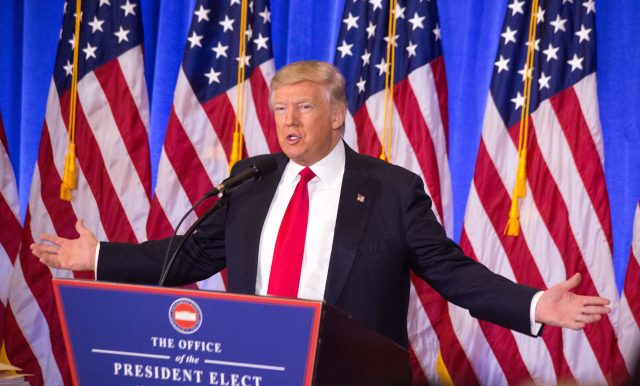Remember when the best reporters were called legends instead of ‘the enemy of the people’
BALTIMORE — Seymour Hersh’s new memoir, “Reporter,” arrives just in time. It’s a time to remember when newspapers still mattered. It’s a time to remember the lies of Richard Nixon and William “Rusty” Calley, and Henry Kissinger and Dick Cheney. It’s a time to recoil from the language of Donald Trump, who calls reporters “the enemy of the American people.”
Enemy of the people? Hersh reminds us that the precise opposite is true – as it is for so much of what this president tells us, which we add to his already frightening list of several thousand verifiable lies.

Over the last half-century, Hersh has been part of a small band of investigative reporters who pushed and shoved their way past lying politicians of both parties, past layers of government flacks hired purely to run interference, past stacks of government files marked “Confidential” mainly to hide political blunders – and brought us, again and again, the bad news that people in power were trying to hide.
Hersh is the Pulitzer Prize-winning reporter who brought us the awful news about our young men and women in uniform – from the sadistic prison horrors of Abu Ghraib in 2004 back nearly half a century to the atrocities of those such as Lt. Calley and the My Lai village slaughter of more than a hundred innocent Vietnamese women and children.
And Hersh puts it in human context, visiting the ramshackle farm of a scarred My Lai veteran, whose “long-suffering mother…said it all: ‘I sent them a good boy,’” the old woman tells Hersh, “and they made him a murderer.’”
Hersh, more than anyone, brought us the breath-taking duplicity of Henry Kissinger, lying about Vietnam and a war that lasted years, and Dick Cheney, lying about weapons of mass destruction in Iraq and a war that’s lasted even more years.
And Hersh reminds us, just in time, of the need for reporters to protect anonymous sources. It’s just in time because of the thing happening right now, with Trump’s Justice Department seizing years of phone and email records from Ali Watkins, of the New York Times.
Prosecutors seized her records as part of an investigation into whether a former Senate Intelligence Committee aide, James A. Wolfe, had given classified material to any reporters. Wolfe was arrested last week on charges of lying to investigators. He’s denied leaking information.
But Hersh’s book is timely beyond the Watkins-Wolfe particulars. We have a president who takes visible delight in tearing down reporters beyond his jarring “enemy of the people” language.
He’s threatened to suspend television broadcast licenses and suggested laws should be changed to make it easier to sue for libel. In Canada over the weekend, at the G-7 summit, he took time to deride CNN as a “fake news” organization.
And this administration’s not the only problem. Under Barack Obama, Attorney General Eric Holder’s Justice Department pursued at least nine leak-related cases. Holder’s gone, but Jeff Sessions, the current attorney general, has said he wants to revisit rules restricting prosecutors’ ability to obtain reporters’ records.
Why is all this important? Because what the government calls “leaks,” reporters call “sources.” What the government calls “confidential” is often a cover for their screw-ups – and officials’ immediate instinct to cover their asses.
That’s why reporters, and their ability to protect sources’ anonymity, is so important. Take away anonymity, you take away much courage of those who see wrong-doing and wish to tell the truth. Take away anonymity, and you dry up the flow of facts, and the ability of the American people to know what’s really happening behind closed doors.
Seymour Hersh has always been one of journalism’s great truth tellers. His memoir arrives just in time. It’s a time when some fundamental tenets of a free society are being threatened as never before.
It’s a time to recall when the best reporters were described as legends – instead of an “enemy of the people.”
This article is republished with permission from Talk Media News

Michael Olesker, columnist for the News American, Baltimore Sun, and Baltimore Examiner has spent a quarter of a century writing about the city he loves.He is the author of several books, including Michael Olesker’s Baltimore: If You Live Here, You’re Home, Journeys to the Heart of Baltimore, and The Colts’ Baltimore: A City and Its Love Affair in the 1950s, all published by Johns Hopkins Press.


Great article and so true.